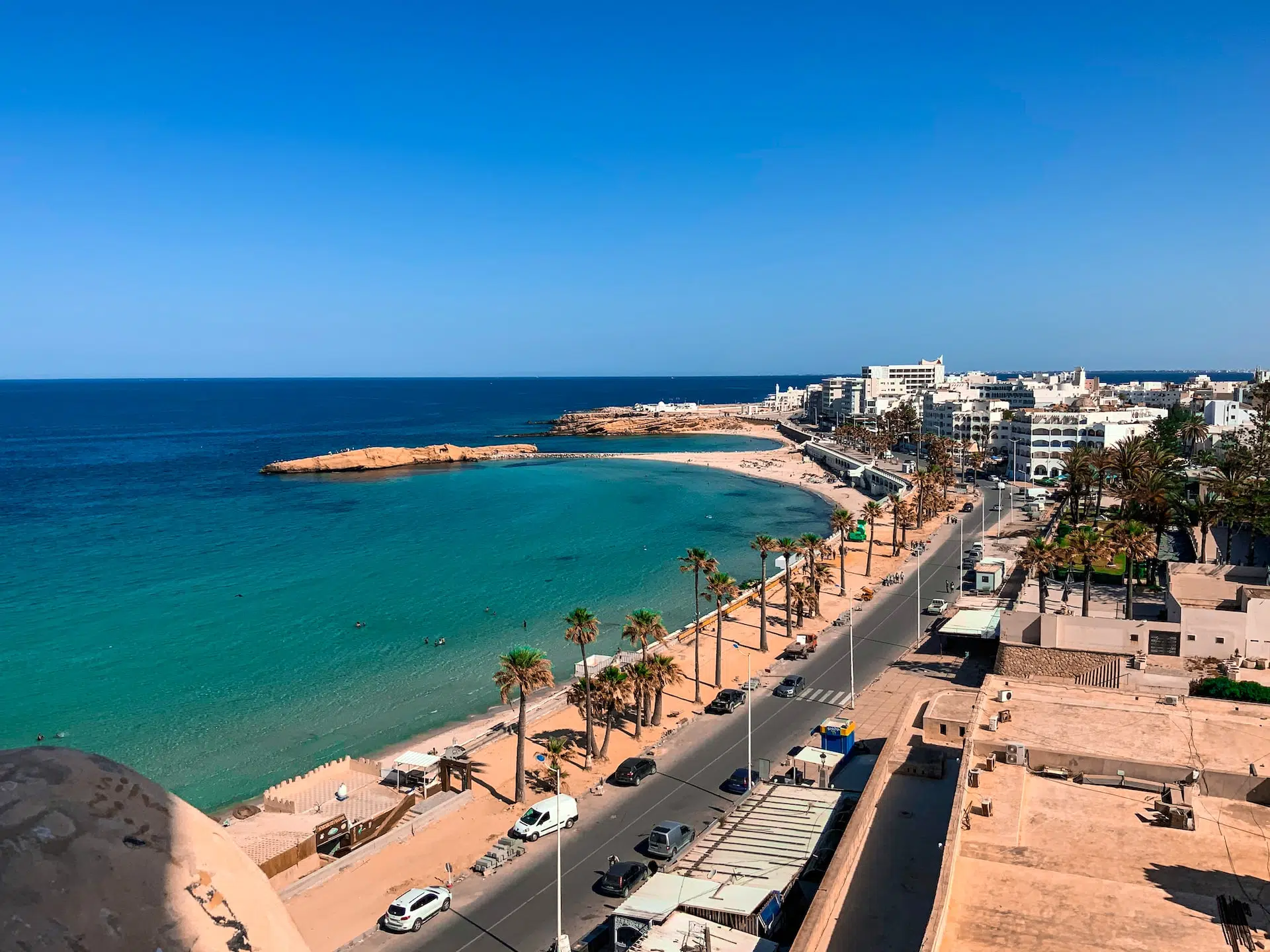Frequently Asked Questions About Tunisia
General FAQs for Tunisia
What is the capital of Tunisia?
The capital of Tunisia is Tunis, located on the Gulf of Tunis along the Mediterranean Sea. It is a bustling city with ancient ruins, mosques, and markets mingling with modern skyscrapers and upscale shopping districts. It is also a cultural hub, hosting events such as the International Festival of Carthage and the International Film Festival of African Cinema. Tunis’ history stretches back to the Phoenician era, and today it remains an important economic and political center in North Africa.
Fun fact: Tunis was once known as “the Paris of Africa” for its chic atmosphere and cosmopolitan flair.
What currency is used in Tunisia?
What languages are spoken in Tunisia?
The official language of Tunisia is Arabic, but French and Tunisian Arabic (also known as Tunisian dialect or Derja) are also widely spoken. Due to its history as a French colony, many older generations in Tunisia still speak French fluently and it remains an important language in business and education. English is becoming increasingly common as a third language, particularly in tourism and international relations.
Fun fact: Tunisian Arabic has its own unique pronunciation, vocabulary, and even alphabet (based on the Arabic script but with additional letters). It is also heavily influenced by French and Italian, due to past colonization and close geographic proximity.
What is the best time to visit Tunisia?
The best time to visit Tunisia largely depends on your preferences and what you want to do during your visit. For beach-goers, the warmest and sunniest months are from May to September. Winter (December to February) can be quite chilly in some areas, but it is also a quieter and less crowded time for tourism. Spring (March to April) and fall (October to November) offer milder weather and fewer crowds. The Islamic holidays of Ramadan and Eid al-Fitr can also impact travel, as businesses may have reduced hours and some tourist attractions may be closed.
How many days do you need for a trip to Tunisia?
What are the emergency numbers in Tunisia?
Places FAQs For Tunisia
What are the best places to visit in Tunisia?
What is the best way to get around in Tunisia?
Budget FAQs For Tunisia
How much will the trip to Tunisia cost?
How much does a meal cost in Tunisia?
How much does accommodation cost in Tunisia?
In general, meals in Tunisia tend to be quite affordable, with a meal at a local restaurant or street food stall costing around $5-10 USD. Dining at higher end restaurants or tourist areas may cost slightly more, but overall the cost of food in Tunisia is quite reasonable. Accommodation options also vary in price, with budget travelers able to find affordable options such as hostels or local guesthouses for $10-20 USD per night. Mid-range hotels and resorts may cost $50-100+ USD per night, and luxury accommodations can easily exceed $200+ USD per night. Fun fact: Tunisia has a number of charming boutique hotels, often housed in historic buildings or featuring traditional Tunisian design elements. These can offer a unique and comfortable stay for mid-range prices.
What is the cheapest time to visit Tunisia?
Culture FAQs For Tunisia
How are the people in Tunisia?
What are the popular dishes in Tunisia?
Which sports are popular in Tunisia?
What are the common religions in Tunisia?
What are the popular festivals celebrated in Tunisia?
Some popular festivals in Tunisia include the International Cultural Festival of Carthage, the Dougga Festival (celebrating Tunisian history and culture), and Ramadan (the Islamic holy month of fasting). No matter when you visit, there is sure to be some kind of festival or celebration happening in Tunisia. Enjoy immersing yourself in the vibrant culture and traditions of this beautiful country.
















